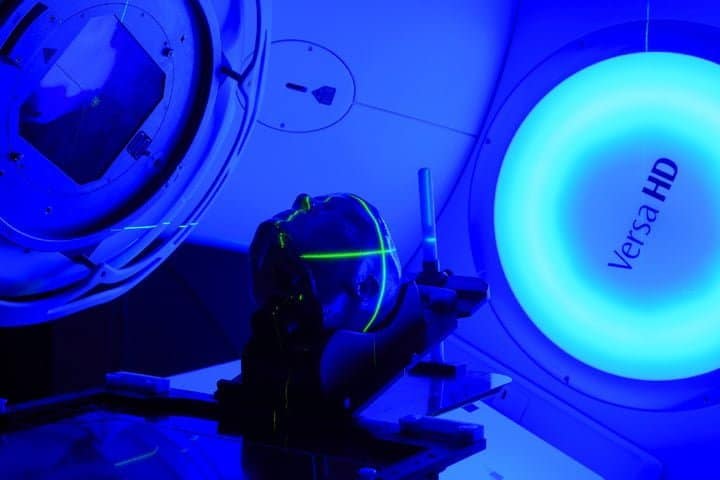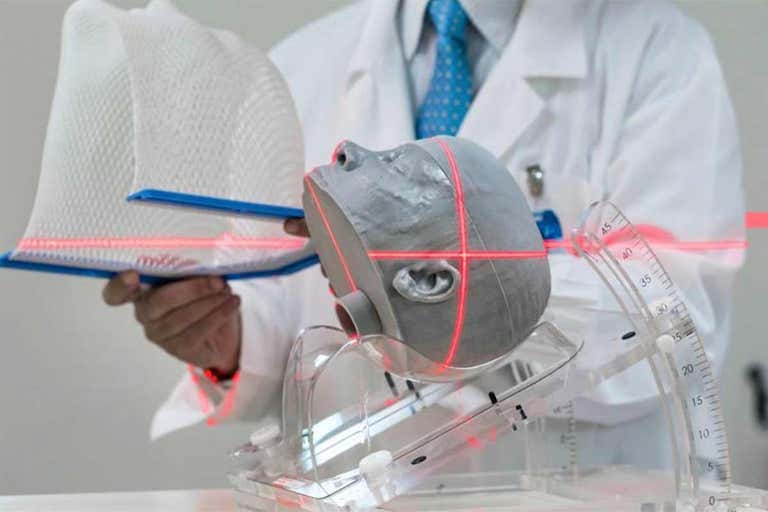Radiation therapy can give a big hand in the treatment of brain cancer, with high doses of precise radiation used to target cancer cells avoiding damage to neighboring areas.
The key word is precisely "precise", however, because even a few millimeters of error can damage healthy tissues with damage that can lead from language difficulty to paralysis.
For this reason, doctors specializing in the sector must have absolutely extraordinary skills and training, and this is where this "intensive training" comes into play.
Today doctors can train their skills in specific treatments on a life-size replica of the patient's skull and brain that will be operated thanks to 3D printing.
Developed by the Greek company RTsafe, the so-called “Personalized PseudoPatient” allows you to carry out a precise scan of a patient's brain, tumor and skull, and then transform the data into a three-dimensional model that can be printed. A "guardian" is then applied to each model which shows the radiation diffusion routes in the various areas.

“As radiotherapy becomes increasingly customizable to the needs of the individual patient, the radiation distribution system becomes more complex and effective,” it can be read on the manufacturer's website.
The "prototype" patient offers truly excellent advances in therapies, because it not only constitutes a “dress rehearsal” of operation, but also the possibility of testing all changes and radiation doses in advance.


